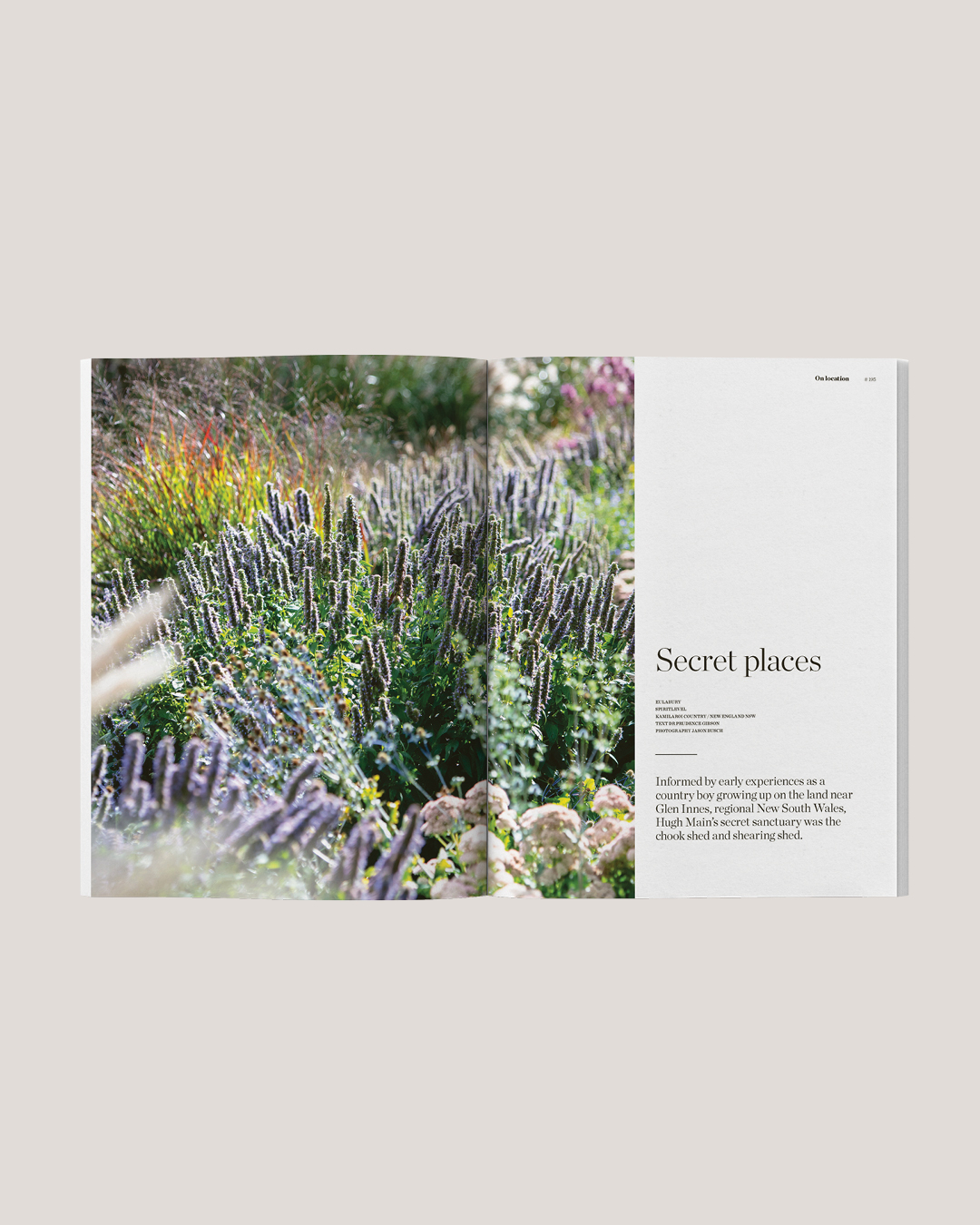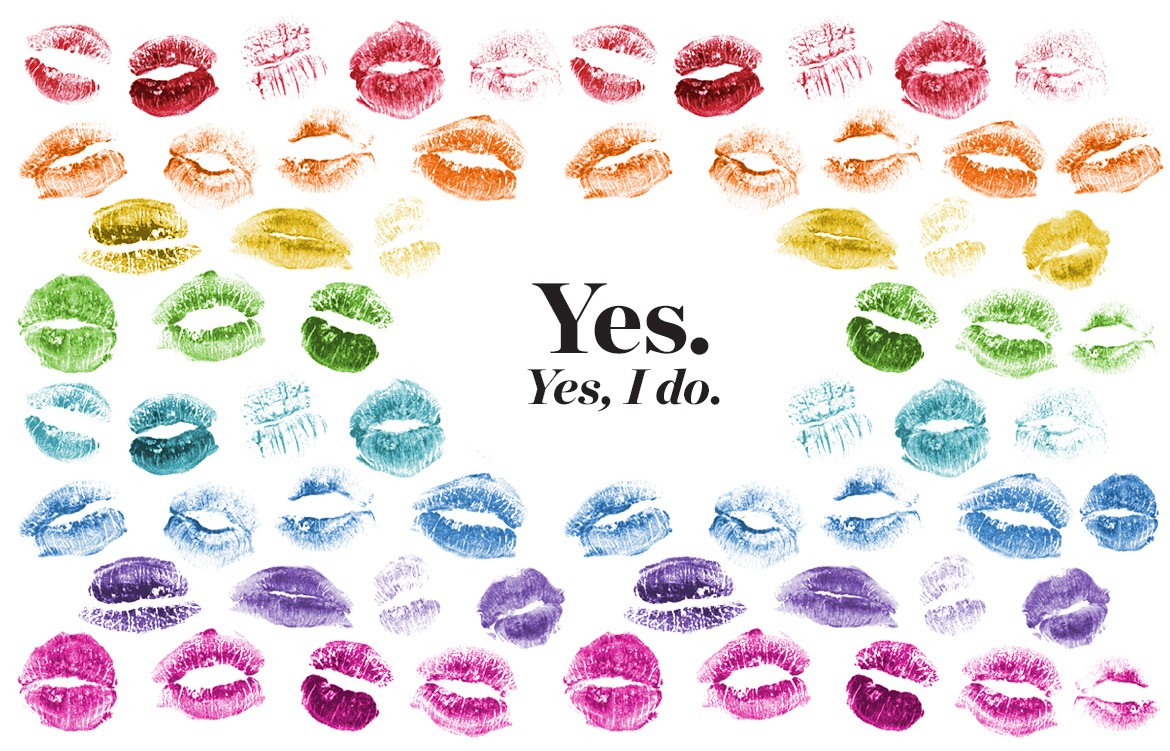It is a Saturday morning as I write this. I am sitting in a café in one of Sydney’s busiest inner-city suburbs. They’re enjoying a roaring trade: the takeaway queue hasn’t shortened for some time now, every table is occupied, and not a single chair is unused. The coffee is rightly celebrated – but I’m not really paying attention. Instead, I’m counting the number of people wearing these odd black rings with a gap in the middle. Today, there are 29 people in the café, 17 wearing this ring.
It’s a fashion statement I’m beginning to see more and more everyday as I get my morning coffee. But, then again, it’s hardly a fashion statement at all. Seemingly appearing on everyone’s finger overnight, these matte black metal rings bearing the engraving ‘Until We All Belong’ along the interior, potentially constitute the boldest and most intelligent campaign for marriage equality we’ve seen thus far.
Designed by famed Australian designer Marc Newson, the rings are produced by AirBnB in partnership with Qantas, Google, eBay, ANZ Bank and other corporate juggernauts, all of whom have collectively created this country’s largest corporate awareness campaign in history. It’s a landmark achievement that remains, nonetheless, deceptively simple. As an ‘acceptance ring’ with a small split to symbolise the current gap in marriage equality, the ‘Until We All Belong’ rings are coupled with heartfelt films of everyday Australians detailing what the ring means to them, for whom they’re wearing it, and why marriage equality is just as much a very personal cause as it is a social one.
And it couldn’t be timelier. With more than 12 million Australians having already participated in the Turnbull government’s same-sex marriage postal survey, new polling has suggested that more than 77 per cent of the nation’s 16 million enrolled voters have lodged their vote. Today, the Equality Campaign estimates that a majority of 69 per cent have tipped the balance in favour of a ‘yes’ outcome. According to Tiernan Brady, director of the Equality Campaign, “we got a taste of the enthusiasm of young Australians when record numbers enrolled on the electoral roll so that they could vote ‘yes’ for their friends, family and workmates.” It’s a touching realisation that “young people, along with the majority of Australians, understand this is about real lives, real people and their dignity,” continues Brady.
He’s certainly not wrong. I first noted the enormous esteem for the rings and their greater motivation when a friend pointed out their omnipresence in the fashion spreads in Marie Claire. Subsequently, I spotted them worn by a large number of television personalities and newsreaders on air; and then again I espied them during Question Time in the senate while the debate continues to escalate only moments away from the Australian Bureau of Statistics announcing the plebiscite results this coming Wednesday. The success of ‘Until We All Belong’ has prompted other companies to enter the fray, with Skyy Vodka launching their ‘Cheers To Equality’ campaign, followed hot on the heels by Smirnoff’s ‘We’re Open’ campaign – all squarely in support of greater equality for all Australians.
In recent weeks, the AFL made the front-page not because of game results, but for the sporting organisation’s inspired approach to supporting same-sex marriage. Changing the AFL logo with the word ‘YES’ for weekend preliminary finals on the MCG and Adelaide ovals, the move has been characterised as a significant milestone in the marriage equality movement – reaching an unprecedented number of the viewing public, and reinforcing the AFL’s ongoing commitment to taking a leadership position on social issues. Echoing its success (and despite posturing from parliamentarians) the NRL Grand Final on the same weekend broadcast the LGBTQI anthem ‘Same Love’, thereby skyrocketing Mackelmore’s hit single to number one position in the music streaming charts.
Combined, thousands of interconnected and independent campaigns rally the ranks of an overwhelming number of Australian businesses, brands and individuals standing up in support of marriage equality. Qantas’ CEO, Alan Joyce, continues to be vocal on his and the airline’s support for the campaign, despite kvetching and catcalling from immigration minister Peter Dutton and several backbenchers, all of whom nonsensically claim that 30+ of Australia’s largest corporations were “bullied” into supporting a market of virtue.
Old dogmas. New tricks. What surprises me, however, is the lack of a broader perspective to most of the detractors’ naysaying. While we all appear deliriously happy to holler ‘yes’ or ‘no’ ad nauseam, few seem to display the awareness that the state of marriage – and especially in this country – continually changes as both a social and legal phenomenon.
Marriage, as it arrived on our colonial doorstep in the trappings of European Christendom, already carried an ambiguous résumé. Almost half a century ago, we brought it to task for constraining the experience and sexuality of women. Over 200 years we continued to amend The Marriage Act to better shape marriage as an institution. Throughout the previous century, constant revisions to this legislation attempted to address the way marriage was experienced, stepping constantly away from its potentially patriarchal manoeuvring. Let’s not forget that the legislation itself remains in a total state of revision (if not a state of equivocation) – such is the wanton way of jurisprudence (thank goodness). And even as early as the mid 1860s, philosopher John Stuart Mill identified the marital bond as merely the bond of female servitude in disguise.
Fast-forward from his findings some hundred years and we arrive at the 1960s and 1970s. In the throes of The Sexual Revolution and the clear, confident voice of a contemporary feminism coming from the Women’s Liberation Movement, we continued to question the ideal versus reality surrounding sex and marriage in this country. The scrutiny was overdue. Little about marriage, at the time (and at this), warranted romantic or sentimental editorialising. We have always known, even in our country’s peculiar history, that marriage has operated to license sexual experience that otherwise is governed by moral codes … if not legal ones. The game for every legislative amendment, then, isn’t one of ‘catch-up’ but, rather one of respect for diversity and progress.
On a global scale within the past decade, progress in this arena has seen the United Kingdom, vast catchments of the European and South American continents, parts of the United States of America, and even the steadfastly Catholic nation of Ireland, all take significant steps to improve the standard of equality for LGBTQI constituents among their citizenry. And within this ambit of first-world Western liberal democracies, Australia’s attempts at following suit have been lacklustre (at best) and insulting (at worst).
Like many corners of the world, the provision of same-sex marriage by Australian law will shape the perception of marriage to match our current socio-cultural reality. Consistently, nations prove that far from diminishing the position of marriage as a prized institution, same-sex marriage only reinforces its significance.
In a country based on equal citizenship, it is our decided opinion at Habitus that the right to marry be must available to all. Our question is simple … and largely rhetorical. Should not every Australian be entitled to marry the person they love, in the country they’re proud to call home?
We are in the business of helping people belong – in their home, in their neighbourhood, in this country. Like you, we seek the dignity and fairness of equal status before the law for all Australians.
And to achieve it, we need only say ‘yes’.
This article was originally published by the writer on behalf of Habitus in McGrath Magazine.

